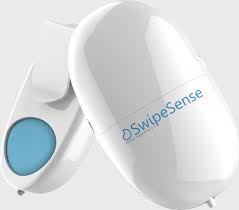Government Grants
Business Grants
Home Owner Programs
Federal Programs
About Us
Forward-Looking Experimentation (FLEX)
The Microsystems Technology Office at DARPA seeks fundamental research proposals for disruptive ideas in information and communication technologies (ICT) addressing the grand challenges for a data-driven future.
Proposed research should investigate innovative approaches that enable revolutionary advances in science, devices, or systems.
The goal of the Forward-Looking Experimentation (FLEX) program is to identify the direction and timing of key disruptive advances in ICT, accelerate technology exploration and generate intellectual property, develop next-generation researchers for the U. S. workforce, and build the foundation for future research programs.
Proposed research should investigate innovative approaches that enable revolutionary advances in science, devices, or systems.
The goal of the Forward-Looking Experimentation (FLEX) program is to identify the direction and timing of key disruptive advances in ICT, accelerate technology exploration and generate intellectual property, develop next-generation researchers for the U. S. workforce, and build the foundation for future research programs.
Agency: Department of Defense
Office: DARPA - Microsystems Technology Office
Estimated Funding: $8,463,698
Office: DARPA - Microsystems Technology Office
Estimated Funding: $8,463,698
Obtain Full Opportunity Text:
SAM.gov Contract Opportunities
Additional Information of Eligibility:
All responsible sources capable of satisfying the Government's needs may submit a proposal that shall be considered by DARPA.
See the Eligibility Information section of the BAA for more information.
Full Opportunity Web Address:
https://sam.gov/opp/574aba9d7f8f43159527e6fa24ca369e/view
Contact:
Agency Email Description:
e-Mail: Program Manager
Agency Email:
Date Posted:
2023-08-09
Application Due Date:
Archive Date:
2024-09-09
Social Entrepreneurship
Spotlight
When it Comes to Social Enterprises, Failure is the Best Platform for Innovation

In the world of social enterprises, failure is a cringe-worthy moment nobody wants to talk about. But, social entrepreneurs can benefit from their failures.

